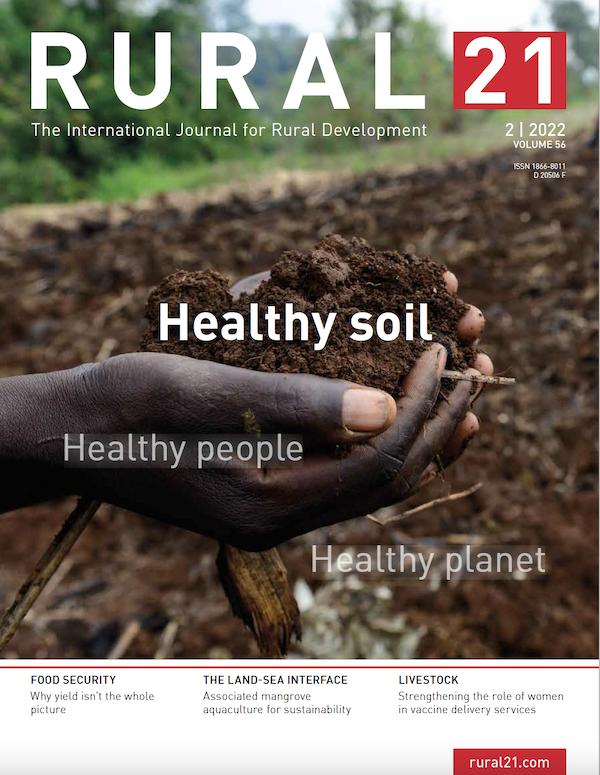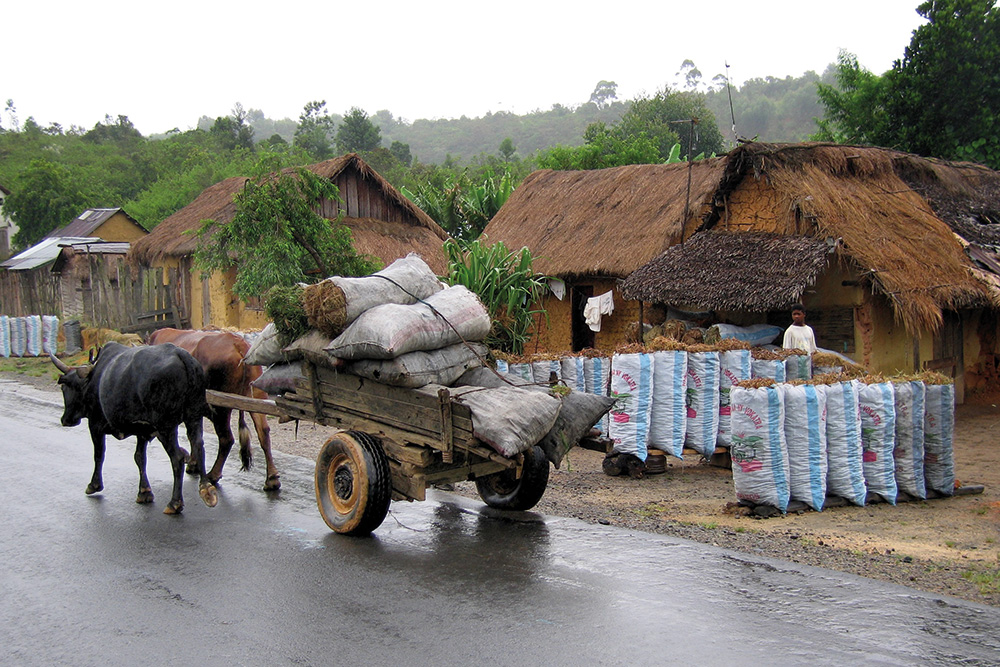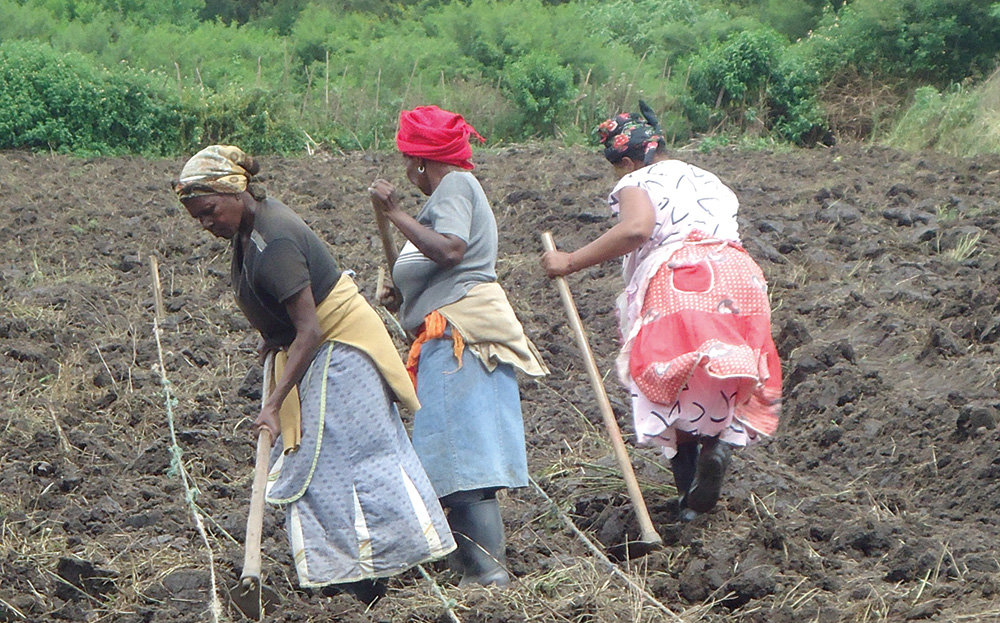Location
The international journal Rural 21 has dedicated more than 40 years to all topics surrounding rural development. Its ambition is to further those strategies and policies that strengthen rural areas of developing and newly industrialising countries and encourage their implementation. The journal addresses the complete range of relevant themes – from agriculture and fisheries via capacity building and education through to health and social security, energy supply and trade. Center-stage is always devoted to inquiring into how measures and strategies can contribute to global food security and to reducing poverty.
Rural 21 desires to further the dialogue between science and politics, the private sector, civil society and practitioners. Two platforms are designed for this purpose: Rural 21 in print is published four times a year, each issue highlighting a specific focus of rural development – this print edition is read in more than 150 countries. In parallel, Rural 21 online keeps the rural development community up to date on news and events, scientific findings and other print and online publications.
Rural 21 is published by DLG-Verlag GmbH in Frankfurt/Germany. Financial partners are BMZ (German Federal Ministry for Economic Cooperation and Development), GIZ (Deutsche Gesellschaft für Internationale Zusammenarbeit), DLG (German Agricultural Society – Deutsche Landwirtschaft-Gesellschaft), SDC (Swiss Agency for Development and Cooperation) and Helvetas Swiss Intercooperation.
The first issue of Rural 21 dates back to 1968. From 1974 to 2007, the journal was published in three languages entitled "entwicklung & ländlicher raum" / "agriculture & rural development" / "agriculture & développement rural". In 2008, the journal was relaunched as "Rural 21".
Members:
Resources
Displaying 1 - 5 of 319Healthy soil, Healthy planet, Healthy people
We cannot live without healthy soil and land. It is on these resources that we produce most of our food and build our homes. We need them to provide clean water and precious plant nutrients, to conserve biological diversity and to cope with climate change. And they form the basis for the livelihoods of millions of people. But despite such known facts, these valuable resources are in a dire state. A third of all soils world-wide are already degraded, and each year, further huge expanses of fertile land go lost.
Tanzania’s Village Land Act 15 years on
The year 2016 marks 15 years since the new wave land reforms became operational in Tanzania. Despite its ambitious goals – encouraging land registration and titling, and empowering women and other vulnerable groups – the results are disillusioning. A brief overview of 15 years of implementation, using the Village Land Act as a case study.
Securing pastoralists’ land tenure rights
Formal land titles are rare in pastoral communities around the world. In the past, this presented hardly any problems, since pastoral land was seen as of little use by most outsiders. But with growing competition for areas legal uncertainty is becoming an increasing threat to the livelihoods of pastoralists.
At the wooden cross-road
Fuelwood and charcoal continue to be indispensable in cooking the daily meal for most people in sub-Saharan Africa; in addition, wood as a fuel represents an important source of income. Pressure on forest resources as well as health hazards through indoor air pollution have resulted in more calls for switching to alternative energy sources. Our authors suggest another alternative: improving the existing supply chains.
Land reform – the solution to rural poverty?
Following the end of apartheid, South Africa’s government set itself ambitious goals with a planned land reform. However, there have since been barely any changes in the country’s agricultural structure, and the positive impacts that were hoped for on rural livelihoods have hardly materialised. A critical assessment of 22 years of land reform policies.






